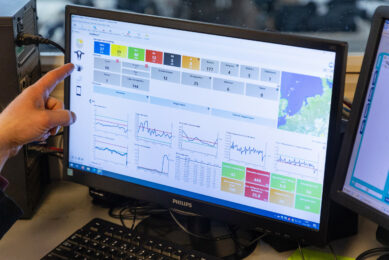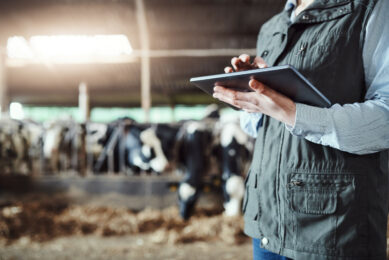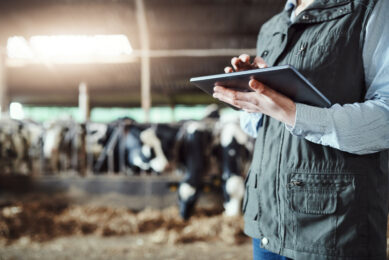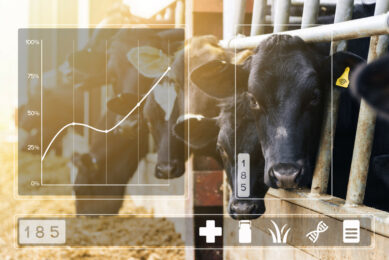Russia’s boom in smart technologies for the dairy sector
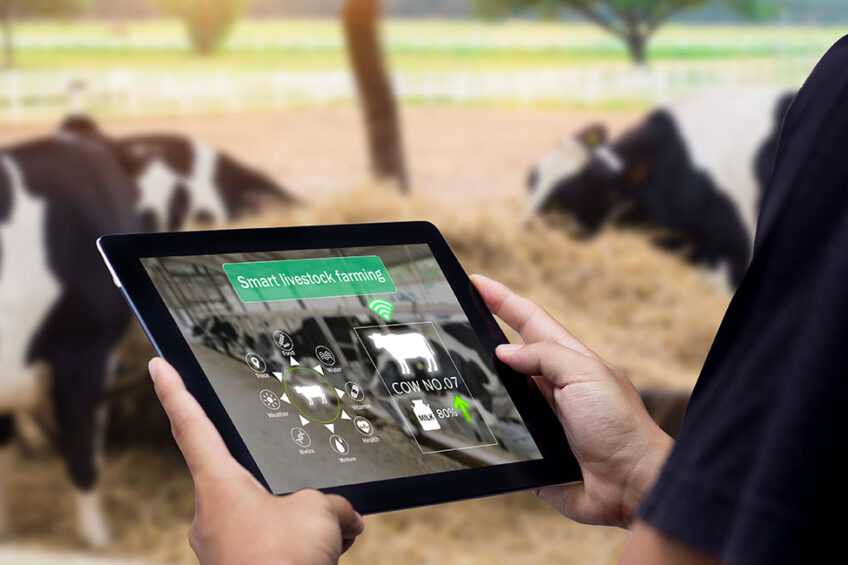
Russia is experiencing a boom in demand for smart technologies among milk farmers who are struggling to achieve better profitability and solve some long-standing issues.
The Russian Agricultural Ministry has recently called for businesses to develop domestic smart farming technologies so that the country does not depend on foreign equipment. The aim is to design intelligent farms where the average production performance stands at 13,000 litres per cow per year, and the risk of mastitis occurrence is substantially lowered, the Ministry said, adding that investments in automation and robotisation are necessary to catch up with global trends.
“The [world’s] milk farm robotisation market is expected to reach 504 billion rubles (US$ 7.5 billion) in 2023,” the Ministry said. “Currently, tens of thousands of robots [at milk farms] are already employed around the world. This market is estimated at 120 billion rubles (US$ 1.8 billion) per year now.”
Artem Belov, general director of the Russian union of dairy producers, Soyuzmoloko, says that it would be wrong to say that smart technologies are introduced only as a request. Most often, this step is dictated by production needs to achieve real cost savings, reduction of losses and solving the problem of a shortage of experienced staff.
All modern enterprises try to introduce as many automated systems and smart solutions as possible, right from the start. They use them to calculate feeding rations, monitor the risks of animal diseases, control losses in the processing segment, better work with retail, etc. He says that when it comes to advanced milking equipment or highly efficient production lines for large factories, investors most often opt for international companies with a well-known name and reputation. However, there are offers in the industry from Russian suppliers of specialised software, and they are in demand on the market.
Smart farm profitability
Smart milk farms’ profitability is usually 40% higher than average, and mastitis occurrence is decreased by as much as 70%, the Ministry claimed, adding that technologically advanced farms in Russia often produce milk matching extra class standards, which is the highest quality milk in the Russian classification.
“The milk farming industry in Russia is one of the most active consumers of modern robotic and digital solutions. A cow is expensive, so it is economically feasible to use all kinds of sensors and smart collars,” commented Oleg Bukhantsev, senior project manager at the Skolkovo Centre, Russia’s “Silicon Valley”.
“Milk producers introduce video analytics solutions to track important stages of an animal’s life, such as when a cow is sexually active or it’s time for calving, and so on,” Bukhantsev said. He explained that robotisation in Russian milk farming is pushed forward not only by well-known international companies. Russian agricultural holdings are increasingly recognising the benefits of smart technologies and pumping money into R&D departments to develop solutions exclusively for their own production needs.
“This [trend] is primarily associated with the huge competition in the market. Leading positions can be taken by a company that implements solutions aimed at optimising production costs or improving the quality of products,” Bukhantsev said.
So far, a rather long payback period prevents companies from massively investing in most smart technologies in Russia. However, all market participants agree that the robotisation trend in the Russian milk industry is now set to gain momentum.
Big money and big data
Designing and building smart milk farms is currently a path that Russia’s biggest bank Sberbank is heading down, putting a lot of effort into expanding its business into new fields in a bid to become more than just a bank.
For example, Mustang Feeding Technologies, part of the Sberbank digital ecosystem, has recently entered into an agreement with the Rostov-based milk company Don Agro to supply artificial intelligence (AI) systems to several of the company’s milk farms. The Mustang’s system creates a digital clone, which helps to monitor key indicators, formalises data into a user-friendly interface and promptly informs the operator of any problems at the production site.
“On our 2 largest farms, we introduced a system to electronically monitor feeding. We can see online the actual dosage of the feed components, as well as the standard dosage. The system assesses feeding quality using a 10-point scale and submits a report by SMS or Telegram. This assessment helps us draw conclusions about staff performance and motivate employees better,” said the general director of Don Agro, Marat Devlet-Kildeyev, adding that the Big Data solutions promise to spur production effectiveness.
“We plan to expand the system to all farms to qualitatively analyse the effect of various factors affecting milk yield and profitability, as well as predict key indicators,” Devlet-Kildeyev added.
In addition, Sberbank has recently supported the construction of a new milk farm in the Republic of Bashkortostan by the A7 Agro holding. Again, AI technologies and Big Data are planned to be employed. The new farm for 1,600 cows is designed to use innovative animal feeding and waste management technologies.
“We not only provide companies with funding but also provide full methodological support for projects and promote the implementation of the best technologies using AI, which dramatically increases the efficiency of all processes and reduces costs,” commented Vladimir Sitnov, senior vice president of Sberbank.
Introducing intelligent technologies in agriculture is said to be one of the main priorities for Sberbank for the coming years.
“The introduction of AI in the economy, including in agriculture, can be compared to a new plan for electrification: AI should become just as widespread and affordable a technology like electricity. Sberbank sees its task in creating tools that would allow any farmer to just plug in and enjoy the benefits of AI – upload their datasets and get the results,” said Herman Gref, president of Sberbank.
“To do this, it is necessary to create sophisticated and super-performing AI systems that are very easy to operate for end-users,” Gref said, adding that Sberbank is working with several technology suppliers and government agencies to speed up this process.
Government, a helping hand
The Russian government is encouraging farmers to modernise equipment and switch to more effective technologies. For some, state aid will be a game-changer.
Fedor Yaroslavtsev, director of the Kurgan-based farm Barabinskoye, admitted that he has been thinking about establishing a robotic farm for several years. He said he had travelled to many countries, had visited Russian colleagues and, in the end, was convinced that smart farming was a necessity.
“The future belongs to advanced technologies. It’s no secret that the number of people willing to work in the livestock industry is shrinking every year. Experienced ones leave, but you can’t lure young people to old farms,” he said, adding that not every farmer in Russia can afford to switch to smart technologies, though.
“We were helped by the regional programme of state support launched last year, which, by the way, we were the first to use,” Yaroslavtsev said. “The bottom line is that when building a new farm, you get half of the cost of equipment subsidised by the regional budget,” he added.
A growing number of Russian regions are introducing programmes aimed at supporting innovative projects in agriculture. Currently, almost any farm in European Russia could get state aid in some form, especially if it plans to employ some smart technologies.
New players coming
Quite a few Russian companies from different sectors are expressing interest in smart agricultural technologies. For example, the major Russian telecommunication company, MTS, recently announced that it has developed a comprehensive solution for managing dairy farms. MTS made the first agreement with Kemerovo-based Derevensky Dairy Plant to employ its new system.
“The MTS smart farming solution allows you to monitor the health of cows, predict the onset of heat and calving, issue tasks to farm employees and monitor their implementation. The solution consists of a smart bolus sensor installed in the cow’s stomach and software that analyses the information and assigns tasks to the staff,” MTS said in a statement, adding that the system is expected to be in most demand among large and medium-sized dairy farms with livestock of 300 head or more.
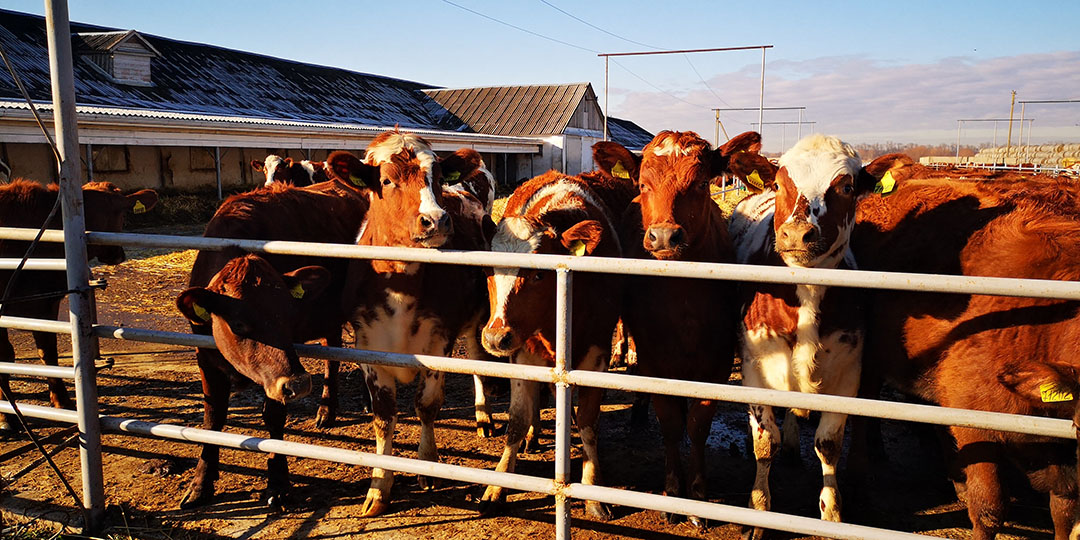
The bolus controls the animal’s motor activity, body temperature and gathers data on water intake. The system determines an animal’s habitual model of behaviour, identifies deviations from it and makes assumptions about what might have caused them. Among other things, the system proved to secure a 15% saving on used drugs, predict calving within 15 hours and reduce the service period from 148 days on average in Russia to 90 days or even less.
The system runs based on a cloud service and allows an operator to monitor the herd’s condition and the operational performance of staff. Every animal has an individual account storing a virtual passport.
“Agriculture is one of the most promising areas for digitalisation. Over the past 5 years, investments in the agricultural technology industry globally have grown by a factor of 2.5 times. MTS intends to become one of the drivers of developing the emerging Russian market for the digitalisation of agriculture. Our ultimate goal is to create a digital twin farm, which will help manage processes based on predictive analytics,” commented Dmitry Khalin, vice president of MTS for cloud and digital solutions.
“Our livestock complex is one of the most modern in the region. As an experiment, we purchased 250 boluses and deployed a smart grid on the farm. Boluses are already installed in cows. They feel good: the devices are completely harmless for the animals and only benefit them,” commented Vyacheslav Chekhovskikh, president of Deveryansky Dairy plant.
Some other Russian telecommunication companies are mulling over plans to develop in the smart farming segment. For example, the Rostelecom in Russia has recently signed a memorandum with Naretrends, a precision farming company in the Republic of Korea, on cooperation in the field of information and communication technologies (ICT) in agriculture.
The companies agreed to participate in a project to develop smart agriculture using systems for managing, monitoring and analysing data based on ICT technologies, the Internet of Things, intelligent sensors and a platform for intelligent big data processing. The plan is to create infrastructure to introduce precision farming technologies in Russia with automatic management, the companies said.



